Flight Buzz
United Airlines’ New Flight Rebooking System Sparks Outrage: Travelers Criticize Lack of Support After Delayed Flights and Frustrating Online-only Solutions
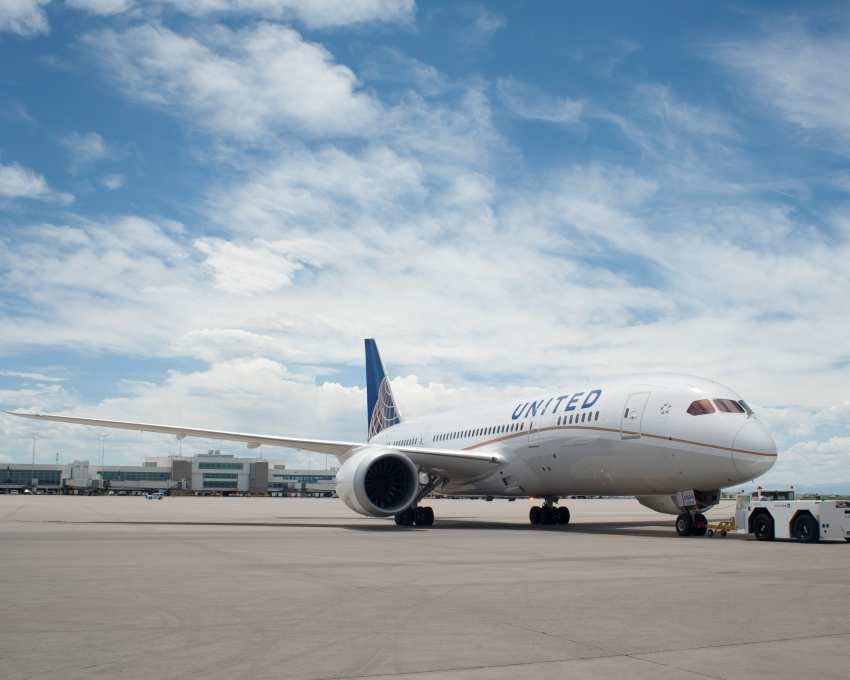
Wednesday, August 6, 2025
In recent years, United Airlines has prided itself on delivering improved customer service, offering travelers an experience that exceeded its competitors. However, this reputation is now being challenged as the airline faces a backlash following a particularly frustrating customer experience. The controversy began after a flight delay from Quebec City, which led to the traveler and their family missing their connecting flight at Newark International Airport.
The airline’s new rebooking system, which had been designed to streamline the customer service process, is now being slammed for leaving travelers stranded and unsupported. While the shift to digital-first solutions had promised efficiency, the reality has been far less favorable. The incident has sparked concerns about the growing reliance on technology at the expense of personalized service and human interaction—an issue that could have far-reaching consequences for the airline industry, particularly in how travelers experience disruptions.
The Shift from Personalized to Impersonal Customer Service
Traditionally, United Airlines was known for its quick, hands-on assistance during delays and flight disruptions. Travelers could typically expect immediate help from customer service agents, who would work swiftly to find a solution. Unfortunately, this once highly praised service model has been replaced by a digital-only system that is leaving passengers frustrated and dissatisfied.
In the Quebec City to Newark incident, the traveler’s family faced a significant delay during customs, causing them to miss their connecting flight by mere minutes. At what should have been a critical moment for customer service, the family was instead given a QR code and directed to a slow, impersonal rebooking website. They were left with no clear instructions on what to do next and no immediate human contact to resolve their situation.
While digital rebooking systems are often seen as more efficient and cost-effective for airlines, they can also alienate travelers when problems arise. In the case of United’s new system, the lack of real-time, human support made the rebooking process longer and more frustrating, with travelers experiencing significant delays in communication and receiving only generic responses from the airline.
Digital-Only Rebooking: A Growing Trend with Significant Consequences
The trend toward using technology to handle customer service is becoming more widespread across the airline industry. However, as airlines like United embrace this model, they risk alienating travelers who expect a more personalized experience. The desire for human interaction during stressful travel situations is not just a luxury; it’s a crucial aspect of maintaining trust and loyalty.
Digital-only rebooking systems, like the one used by United, are meant to streamline the process, saving time and costs for the airline. In theory, they provide passengers with the ability to manage their own rebooking without waiting in line or speaking to a customer service representative. However, in practice, tech-heavy solutions often lead to long waits, confusion, and a general sense of being abandoned in times of crisis.
In this case, after missing their connecting flight, the family was left to deal with a slow and unresponsive website. Instead of receiving immediate rebooking options or a clear path forward, they were forced to navigate a cumbersome process with minimal guidance. This lack of support is especially problematic in high-stress situations, where travelers need quick assistance to avoid further disruption to their plans.
Effect on the Travel and Tourism Industry: What This Means for Airlines and Customers
As travel disruptions continue to affect passengers worldwide, airlines need to reconsider how they handle customer service during these times. The increasing reliance on automated systems may help airlines cut costs and reduce the need for staff, but it also comes at the expense of personalized service. Customers expect more than just a quick solution to a problem—they expect empathy, understanding, and, most importantly, human interaction.
The backlash United Airlines is facing over its rebooking system highlights a broader issue within the travel and tourism industry. As travelers become more accustomed to using digital tools, they expect airlines to balance technology with a personal touch. Airlines that fail to provide a balance between the two risk losing customer loyalty, which could have long-term repercussions on the industry’s growth.
The trust that travelers place in airlines is not easily regained once broken. Delayed flights and missed connections are common occurrences in the travel industry, but the manner in which they are handled can make or break a customer’s experience. United Airlines, with its previously strong reputation for customer service, may now find itself in a difficult position as it grapples with the fallout from this rebooking debacle.
A Case for Balanced Innovation: Can Airlines Improve the Tech-Human Experience?
While technology is undeniably an essential part of the modern travel experience, the human element remains crucial, especially when things go wrong. The key takeaway from United Airlines’ recent incident is that airlines must find a way to balance innovation with the needs of their passengers. Digital tools should enhance, not replace, the human connection that customers expect when dealing with disruptions.
To avoid further damage to their reputation, United Airlines and other airlines adopting digital-only systems should consider implementing hybrid models where technology can assist customers, but human agents are readily available to step in when needed. For example, automated systems could provide travelers with initial options, but if a problem arises, passengers should be able to quickly access real-time support from a representative who can provide immediate assistance.
Moreover, airlines should focus on improving their online interfaces to make them more intuitive, ensuring that travelers can find solutions quickly without feeling lost or frustrated. A seamless blend of technology and human service would likely provide the best of both worlds—offering the convenience of automation while maintaining the personal touch that passengers need during times of uncertainty.
The Broader Implications: What This Means for the Future of Travel
United Airlines’ new rebooking system fiasco may be an isolated incident for now, but it reflects a larger trend in the travel industry. As airlines look to cut costs and streamline operations, many are moving toward digital-first models. While these systems have their benefits, they must be implemented with care to avoid alienating customers who still value the personal touch that has been a hallmark of quality service for years.
As travel and tourism continue to evolve, the industry needs to strike a balance between cutting-edge technology and personalized customer service. Innovations in tech should aim to make the travel experience easier and more convenient but must not replace the empathetic, human connections that passengers expect. The success of any airline or travel company in the future will depend on its ability to provide a seamless blend of both, ensuring that customers feel supported and valued at every step of their journey.
Conclusion: Restoring Trust Through Customer-Centric Solutions
The experience shared by a United Airlines passenger highlights a growing concern in the travel industry: technology is not a substitute for human care. While digital solutions can improve certain aspects of the travel process, they should never replace the human element that is essential in maintaining trust and customer satisfaction. In this case, United Airlines must recognize that a seamless customer experience requires both innovative tech and personal support, especially in times of disruption.
To rebuild customer loyalty and trust, airlines must carefully consider how they incorporate technology into their customer service strategies. A balance between automation and real-time assistance is key to ensuring that passengers feel supported—not just processed—when things go wrong. By prioritizing a customer-centric approach that integrates the best of both worlds, the travel industry can avoid further backlash and ensure that passengers’ needs are met with both efficiency and empathy.
Image Custody: United Airlines
Flight Buzz
Air India To Fully Resume International Flights From Oct 1; CEO Assures Complete Safety Measures
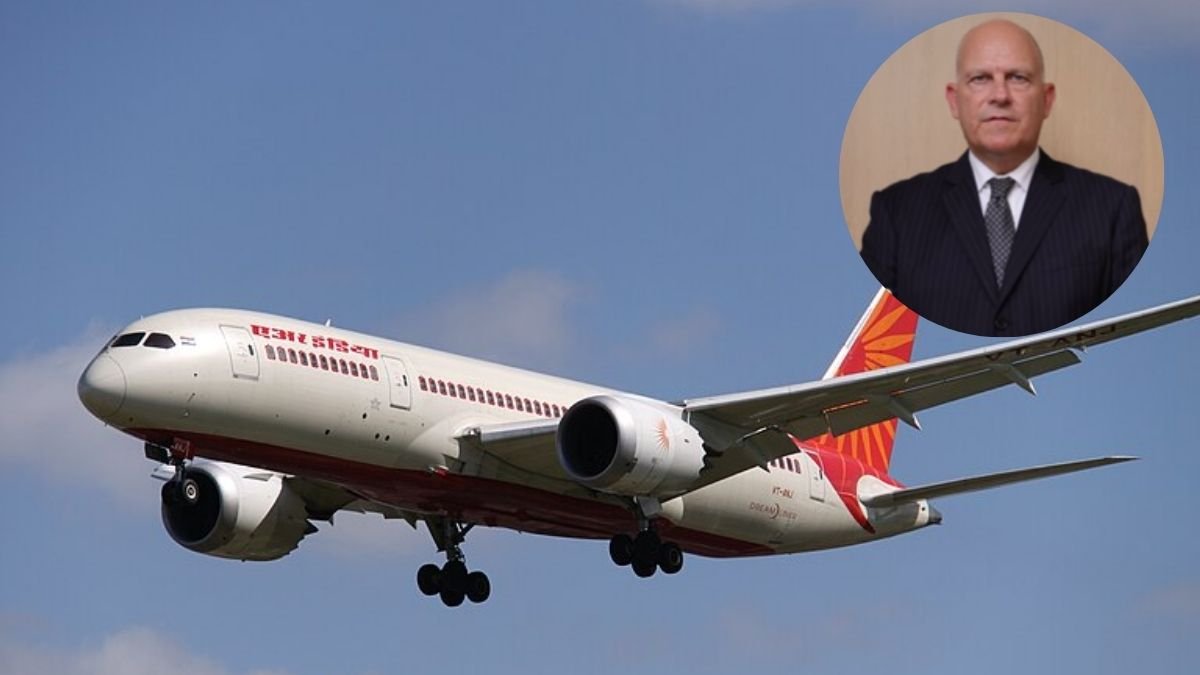
Air India is all set to fully resume its international flights from October 1. CEO Campbell Wilson announced on Wednesday that the airline started restoring its international services in phases from August 1. Now, they’re targeting full resumption. He also assured the complete safety of passengers.
Air India To Fully Resume Its International Flights
Air India had earlier announced a 15% cut in its international flights operating on wide-body aircraft on June 18. The decision was taken after the deadly AI171 crash in Ahmedabad. However, the airline began a phased restoration of services in August. As per a report by Hindustan Times, the airline’s CEO, Campbell Wilson, announced on Wednesday that they now plan to fully restore international flight operations from October 1.
The statement also acknowledged that after the tragic crash, there has been “heightened scrutiny, coverage, and concern about air travel,” adding that the airline has now undertaken complete safety measures for the well-being of its passengers.
Also Read: Air India Delhi-Milan Flight Cancelled; Boeing 787 Dreamliner Faces Technical Snag Before Take-Off
CEO Addresses Challenges
Acknowledging the recent disruptions, the CEO added that he recognises there have been some operational challenges over the past few weeks, which have disrupted air travel. He assured that the airline is taking the matter seriously and is working to minimise inconvenience to passengers.
Moreover, this measured approach gives them enough time to complete every verification and resume services fully with “complete confidence.” The decision has been taken to ensure stability in Air India’s operations, to improve efficiency, and to reduce inconvenience to flyers.
As per a report by Mint, Campbell Wilson stated that Air India has conducted detailed inspections of its fleet of Boeing 787-8 and 787-9 aircraft under India’s aviation regulator, the Directorate General of Civil Aviation (DGCA). He confirmed that no issues were found in the aircraft during inspection. He also mentioned that the fuel control switch was inspected, and no problems were detected there either. Additionally, he added that Air India’s safety protocols are “rigorous and multi-layered.” Every aircraft will now undergo thorough checks before take-off by trained engineers and pilots.
Also Read: Your Humour Brings Joy Even In The Clouds,” Air India Crew Surprises Vir Das With A Heartfelt Note
The international flights, which were being operated in phases, will now resume fully from October 1.
Cover Image Courtesy: Air India, Wikipedia/ aeroprints and Air India/ Instagram
For more such snackable content, interesting discoveries and the latest updates on food, travel and experiences in your city, download the Curly Tales App. Download HERE.
First Published: August 07, 2025 11:15 AM
Flight Buzz
Dubai-Manila flights: Book tickets for Dh8 only in Cebu Pacific’s August sale
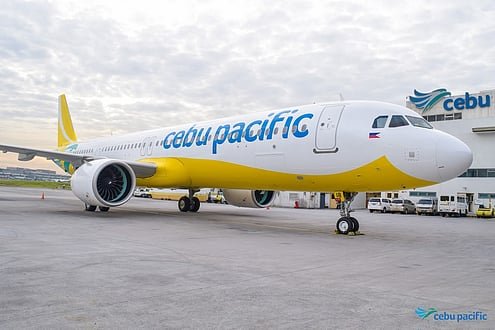
Travellers booking flights from Dubai to Manila can now get a ticket for as low as Dh8 (base fare), as part of a special offer from Cebu Pacific (CEB).
The Philippines’ leading carrier has launched its August seat sale. From August 7-10, guests from Dubai may book flights to Manila for as low as AED 8 one-way base fare, exclusive of fees and surcharges. The travel period runs from February 1 to June 30, 2026.
With the airline’s widest domestic reach, travellers can plan their trips to the Philippine capital or connect to the airline’s other key regional hubs such as Clark, Cebu, Iloilo and Davao, for faster inter-island access within the country.
Stay up to date with the latest news. Follow KT on WhatsApp Channels.
From Manila, CEB flies to 27 Philippine destinations, including Dumaguete and Iloilo. From Dumaguete, visitors can unwind in natural spring pools or take a short boat ride to Apo Island for diving or snorkeling. From Iloilo, travellers can explore Gigantes Islands or visit Guimaras in May for the Mango Festival.
Just a two-hour drive from Manila, Clark offers activities such as archery or a trek to Mount Pinatubo. CEB’s Clark hub can also serve as a jump-off point to Puerto Princesa, which features the renowned Underground River and offers island-hopping tours for an immersive experience.
CEB operates in 37 Philippine domestic and 26 international destinations spread across Asia, Australia, and the Middle East.
Flight Buzz
Hundreds of flights delayed after tech issue grounds United Airlines flights
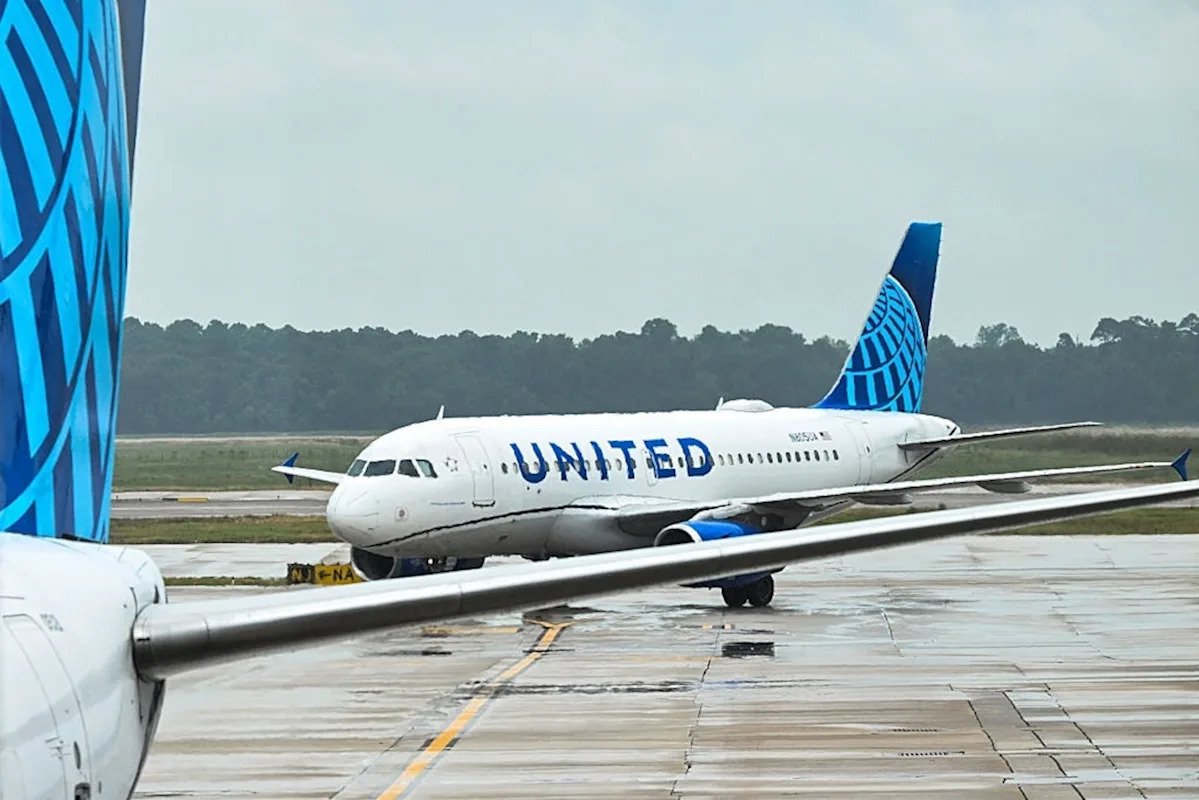
A tech outage led United Airlines to ground flights nationwide Wednesday night, and even with the issue now resolved, over 1,000 flights have been delayed and dozens canceled.
The outage stemmed from an issue with the airline’s weight and balance computer system, United said.
“Due to a technology issue, we are holding United mainline flights at their departure airports,” the airline said in a statement. “We expect additional flight delays this evening as we work through this issue. Safety is our top priority, and we’ll work with our customers to get them to their destinations.”
The airline said the outage began shortly after 6 p.m. ET and was resolved after a few hours.
Overall, more than 1,000 flights have been delayed and more than 40 canceled, according to FlightAware. United said it’s covering meals and hotels for impacted customers.
The Federal Aviation Administration said in a statement it was aware the airline “experienced a technology issue disrupting their operations.”
U.S. Transportation Secretary Sean Duffy said the issue was specific to United’s operations “and is unrelated to the broader air traffic control system.”
The airline confirmed in a statement to ABC News that the issue was not related to a cyberattack.
The ground stop did not affect United Express flights, and any flight that was already in the air will continue to its destination, according to the airline.
Multiple FAA notices stated that the airline requested ground stops at major hubs, including Newark, San Francisco, Chicago, Denver and Houston.
This is a developing story. Please check back for updates.
-

 Brand Stories2 weeks ago
Brand Stories2 weeks agoBloom Hotels: A Modern Vision of Hospitality Redefining Travel
-

 Brand Stories2 weeks ago
Brand Stories2 weeks agoCheQin.ai sets a new standard for hotel booking with its AI capabilities: empowering travellers to bargain, choose the best, and book with clarity.
-

 Destinations & Things To Do3 weeks ago
Destinations & Things To Do3 weeks agoUntouched Destinations: Stunning Hidden Gems You Must Visit
-

 Destinations & Things To Do2 weeks ago
Destinations & Things To Do2 weeks agoThis Hidden Beach in India Glows at Night-But Only in One Secret Season
-

 AI in Travel3 weeks ago
AI in Travel3 weeks agoAI Travel Revolution: Must-Have Guide to the Best Experience
-

 Brand Stories1 month ago
Brand Stories1 month agoVoice AI Startup ElevenLabs Plans to Add Hubs Around the World
-

 Brand Stories4 weeks ago
Brand Stories4 weeks agoHow Elon Musk’s rogue Grok chatbot became a cautionary AI tale
-

 Brand Stories2 weeks ago
Brand Stories2 weeks agoContactless Hospitality: Why Remote Management Technology Is Key to Seamless Guest Experiences
-

 Asia Travel Pulse1 month ago
Asia Travel Pulse1 month agoLooking For Adventure In Asia? Here Are 7 Epic Destinations You Need To Experience At Least Once – Zee News
-

 AI in Travel1 month ago
AI in Travel1 month ago‘Will AI take my job?’ A trip to a Beijing fortune-telling bar to see what lies ahead | China



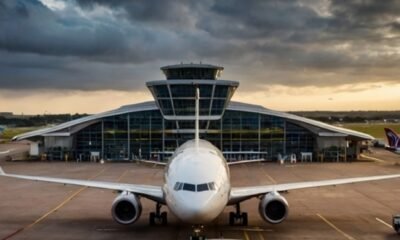







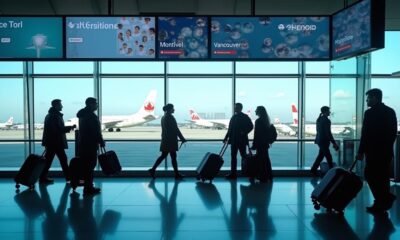

You must be logged in to post a comment Login